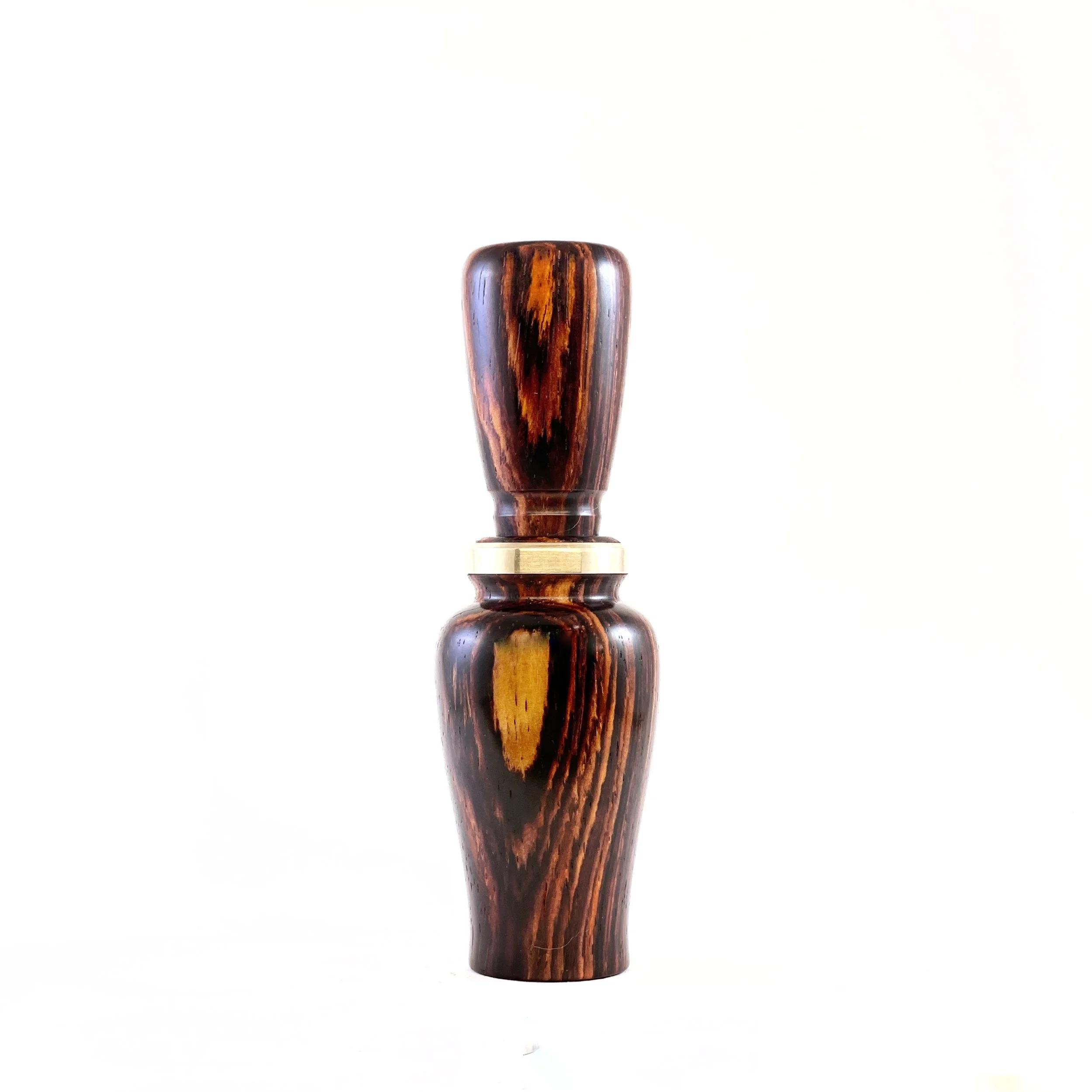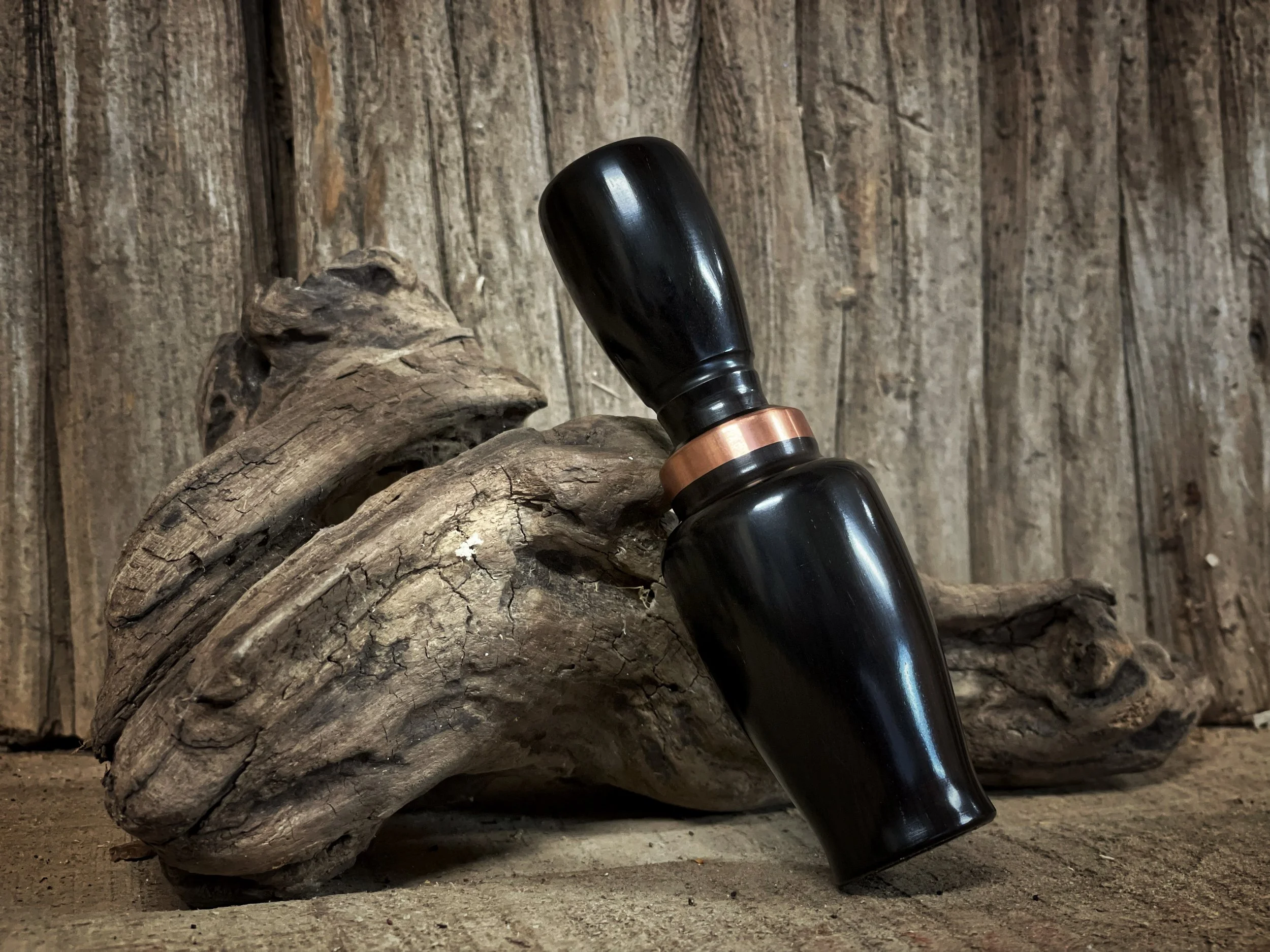Best Woods for Duck Calls: Cocobolo, Hedge, Blackwood & More
The Woods Behind the Call: A Guide to Duck Call Wood Types
At McCain Calls, every duck call begins with a block of hand-selected wood. That wood isn’t just a canvas—it’s the heart of the call. The grain, density, and moisture content all affect tone, durability, and beauty. In this post, we’ll explore some of the most popular woods we use in our shop and what makes each one special for waterfowl hunters who demand performance and craftsmanship.
Cocobolo: The Classic Performer
Origin: Central America
Tone Profile: Warm, rich, and raspy
Cocobolo is a longtime favorite among call makers and seasoned hunters alike. Its dense, oily nature allows for sharp sound projection with minimal moisture absorption. Its reddish-brown tones and dramatic grain make it a visual standout. This is a go-to for hunters who want durability in all conditions without sacrificing a classic, raspy tone.
Bocote: Bold and Beautiful
Origin: Mexico & Central America
Tone Profile: Clear and snappy with plenty of volume
Bocote is a striking wood with wild black streaks and high contrast. It’s slightly less dense than cocobolo but still performs exceptionally well in the marsh. Bocote calls have a clean, bold look that turns heads and delivers crisp high-end sound, ideal for fast cadence calling and open water hunts.
Hedge (Osage Orange): The Traditionalist’s Choice
Origin: Southern U.S.
Tone Profile: Bright and sharp
Also known as “hedge” or “bois d’arc,” Osage Orange has been a southern staple in call making for decades. This wood is extremely dense and hard, making it perfect for sharp, piercing calls that cut through wind and noise. Over time, its bright yellow color ages to a deep amber, developing even more character.
Blackwood: The Precision Instrument
Origin: Africa
Tone Profile: Deep, mellow, and balanced
African Blackwood is one of the most acoustically stable woods available, often used in high-end musical instruments. Its tight grain and natural oil content make it nearly impervious to weather. It delivers a smooth, well-rounded tone that appeals to hunters who value precision and consistency.
Stabilized Woods & Hybrids: Where Art Meets Performance
Stabilized woods are treated with resin under pressure to create a moisture-resistant, ultra-durable material. These pieces are often paired with acrylic or colored resin to create hybrid calls that are as much a work of art as they are a hunting tool. While tone can vary, stabilization often enhances consistency across temperatures and humidity.
Choosing the Right Wood for You
There’s no single “best” wood—just the best one for your hunting style and personal preference. Whether you’re drawn to the warmth of cocobolo, the edge of hedge, or the striking grain of bocote, each McCain Call is crafted to carry your hunt forward with purpose.





